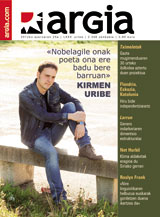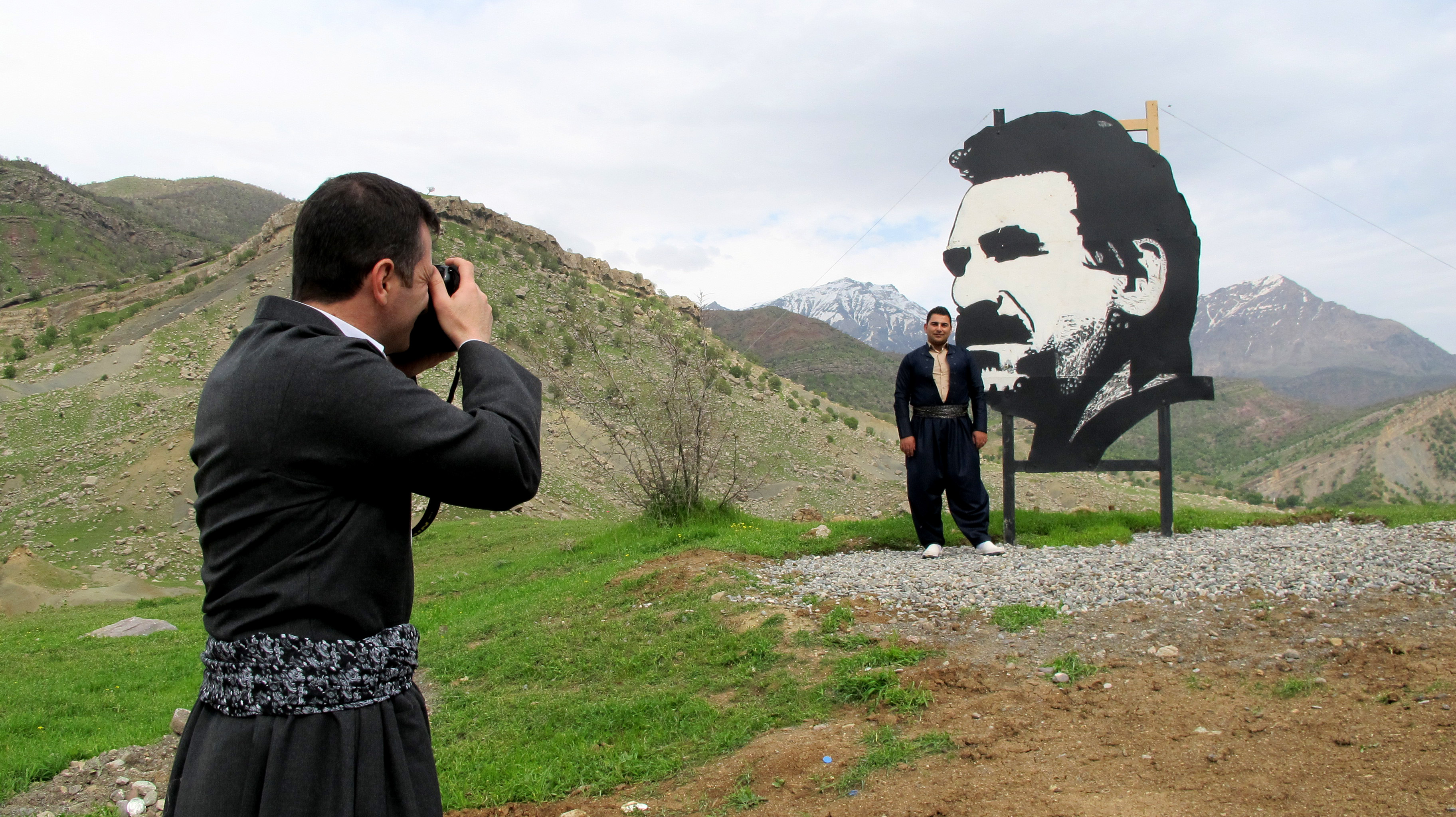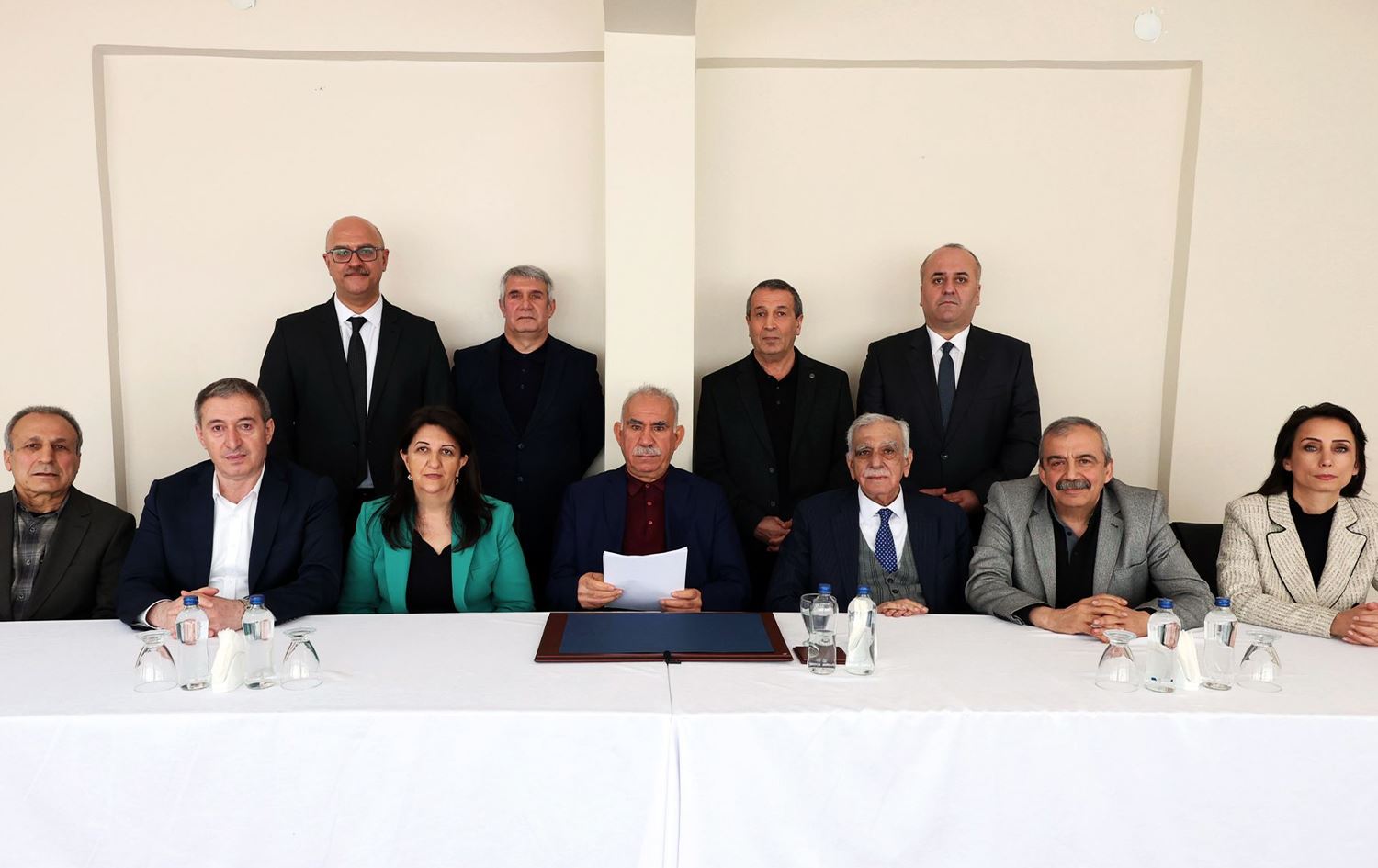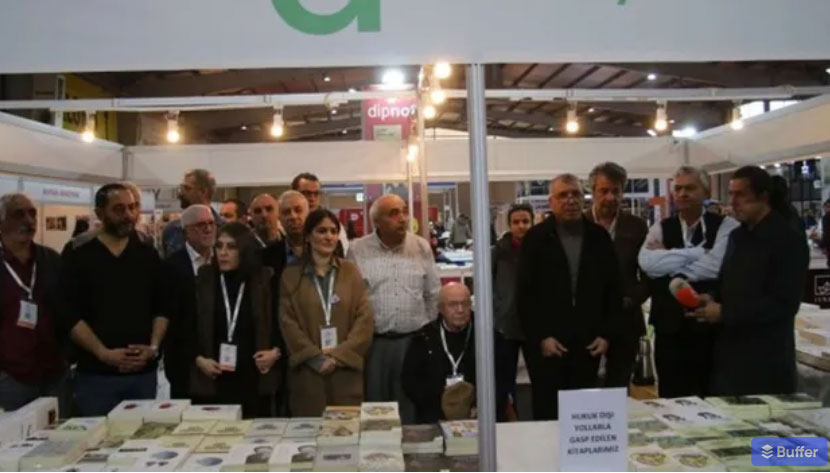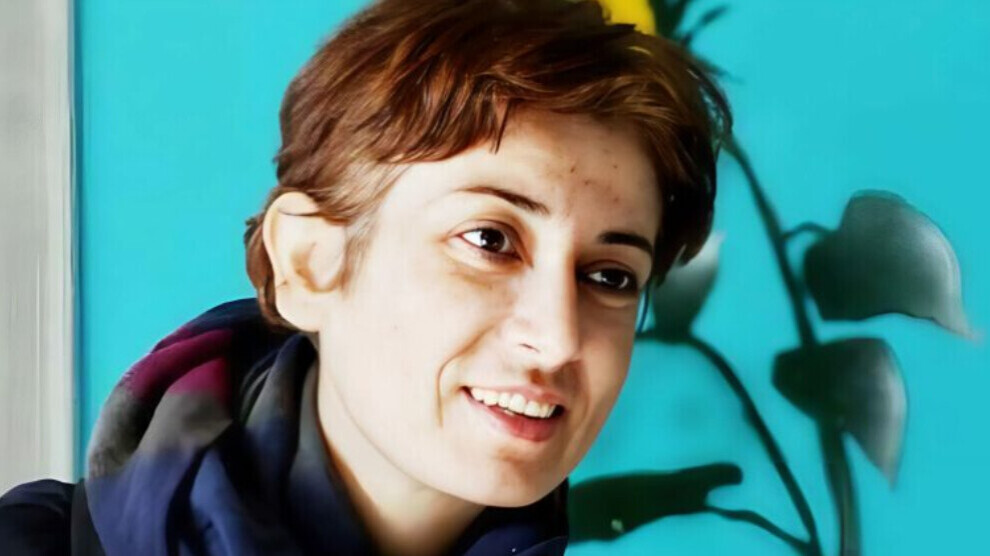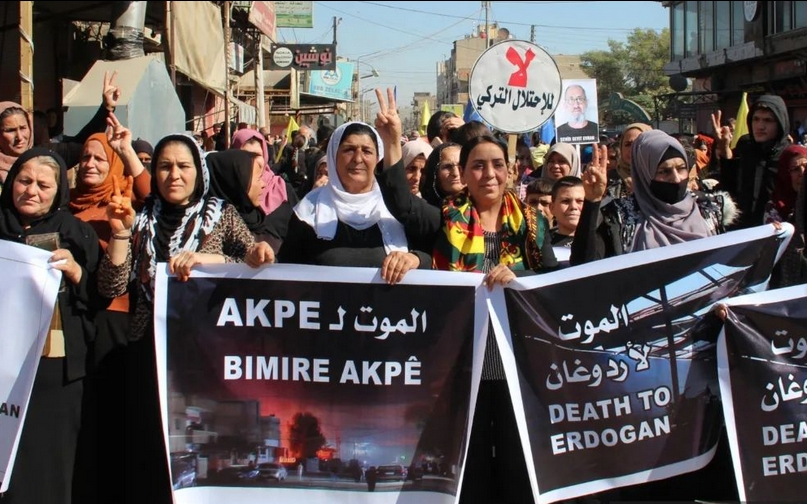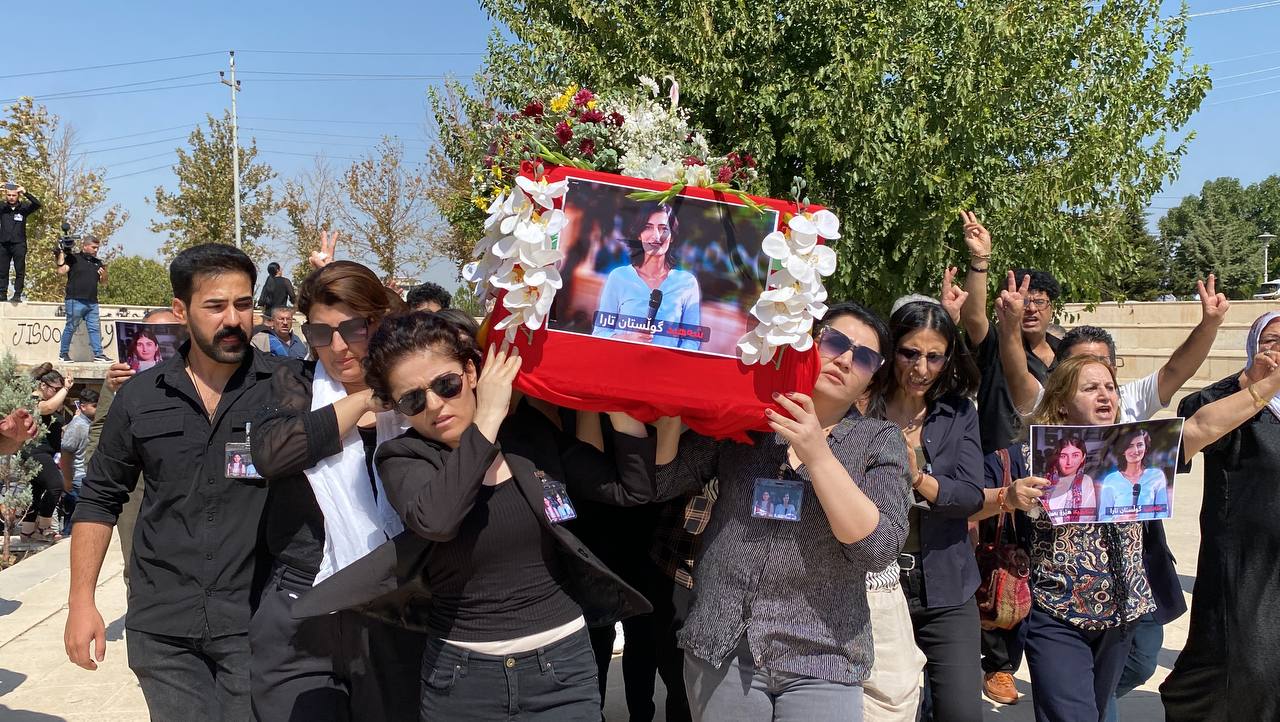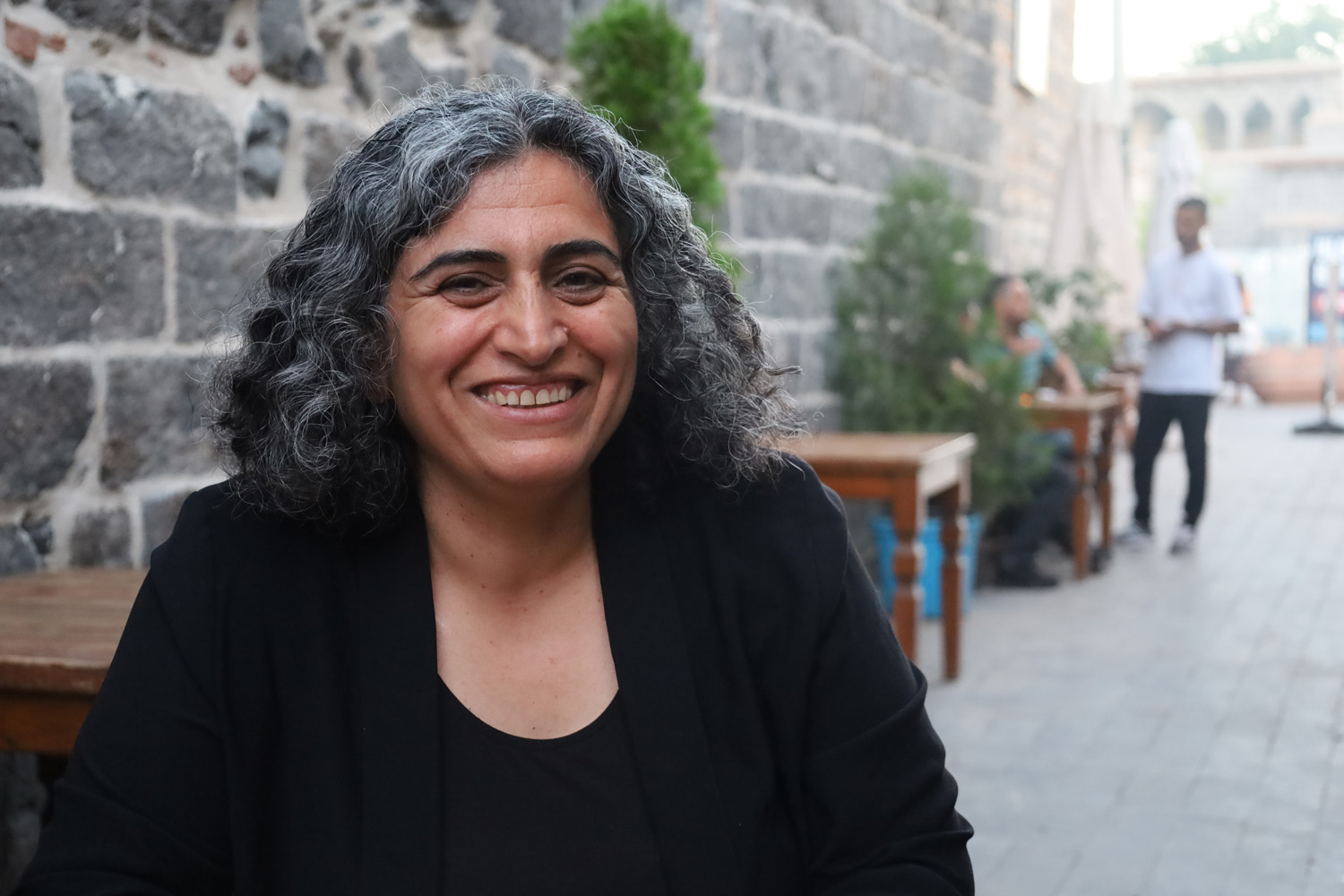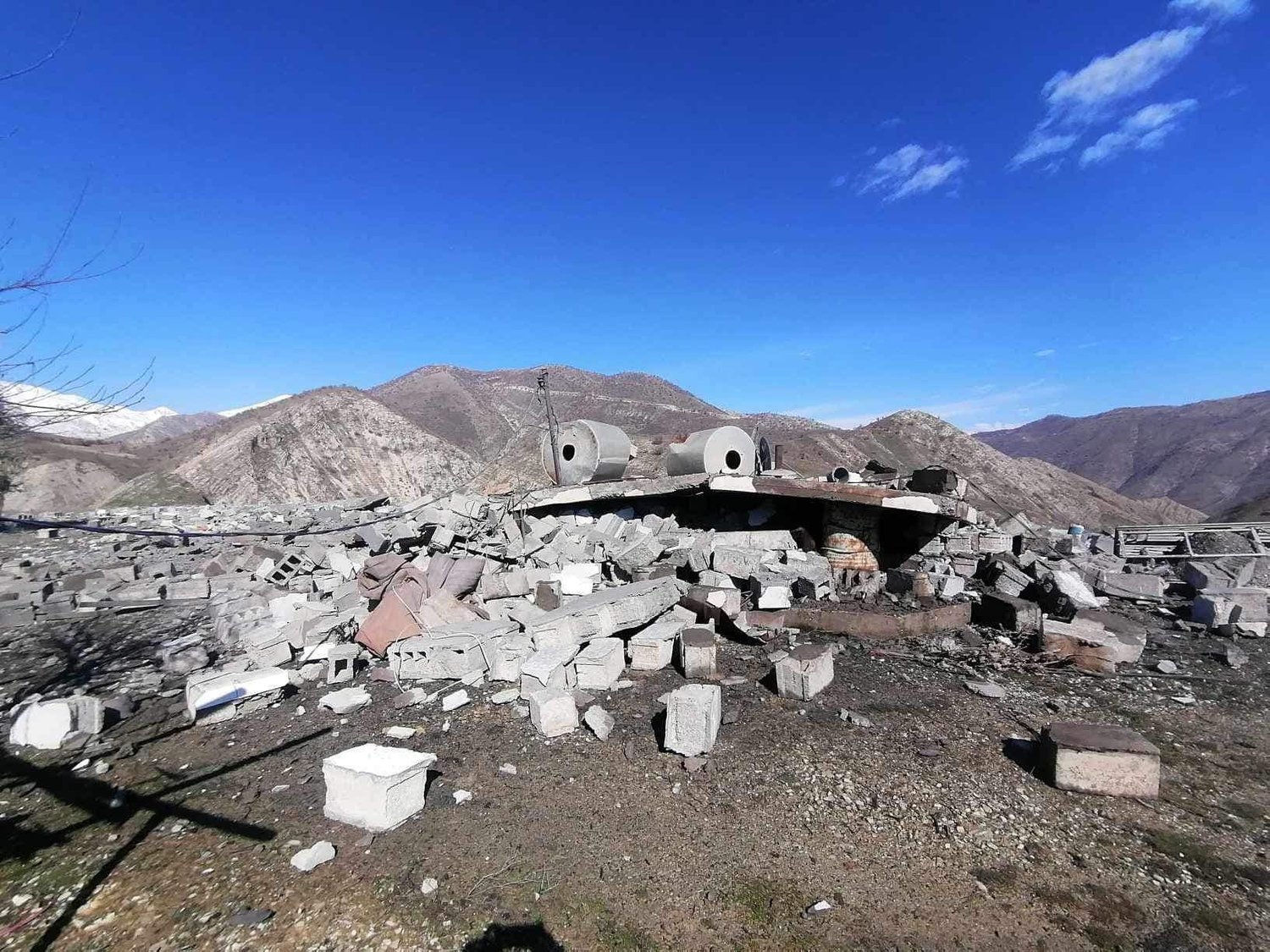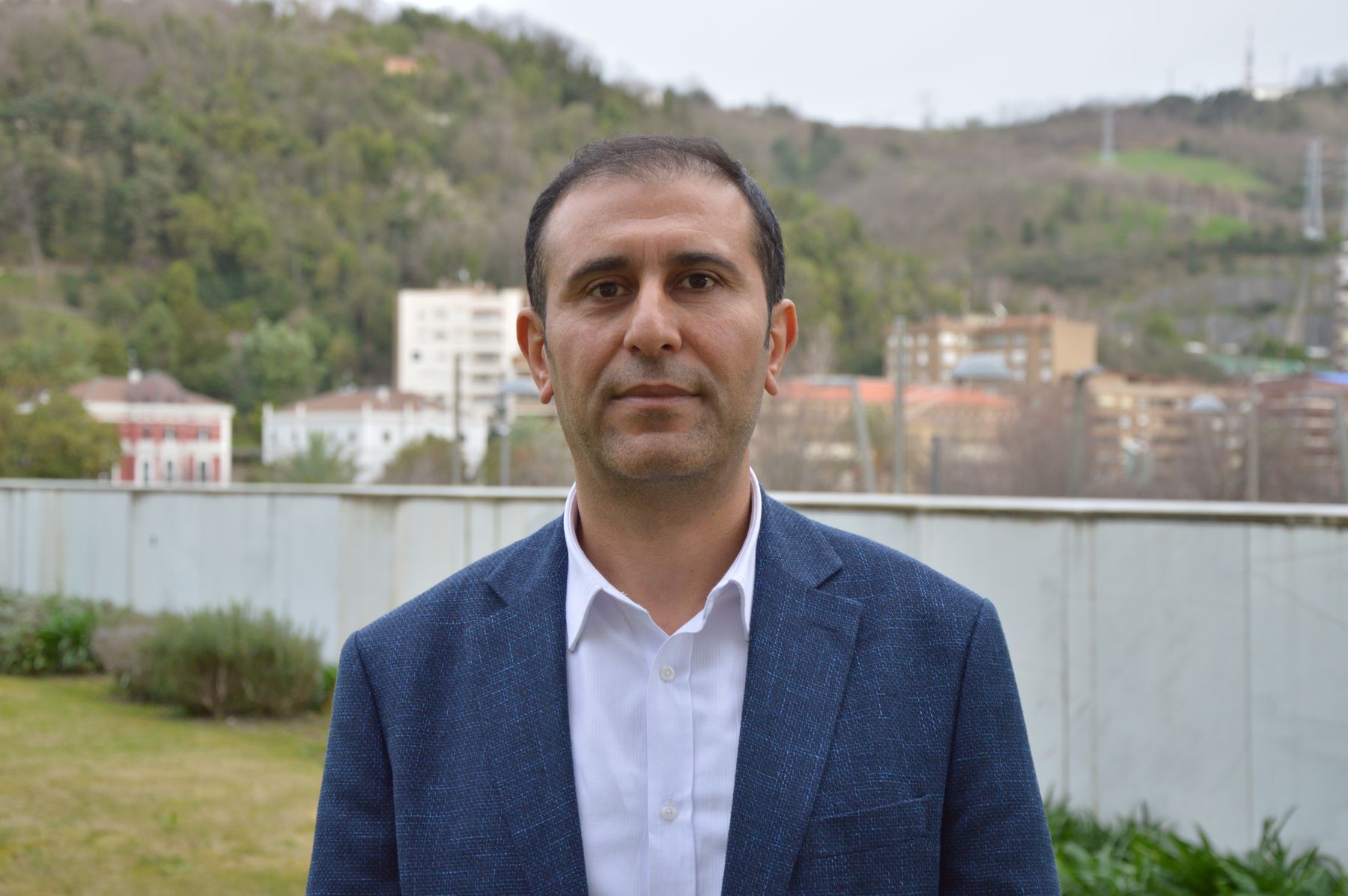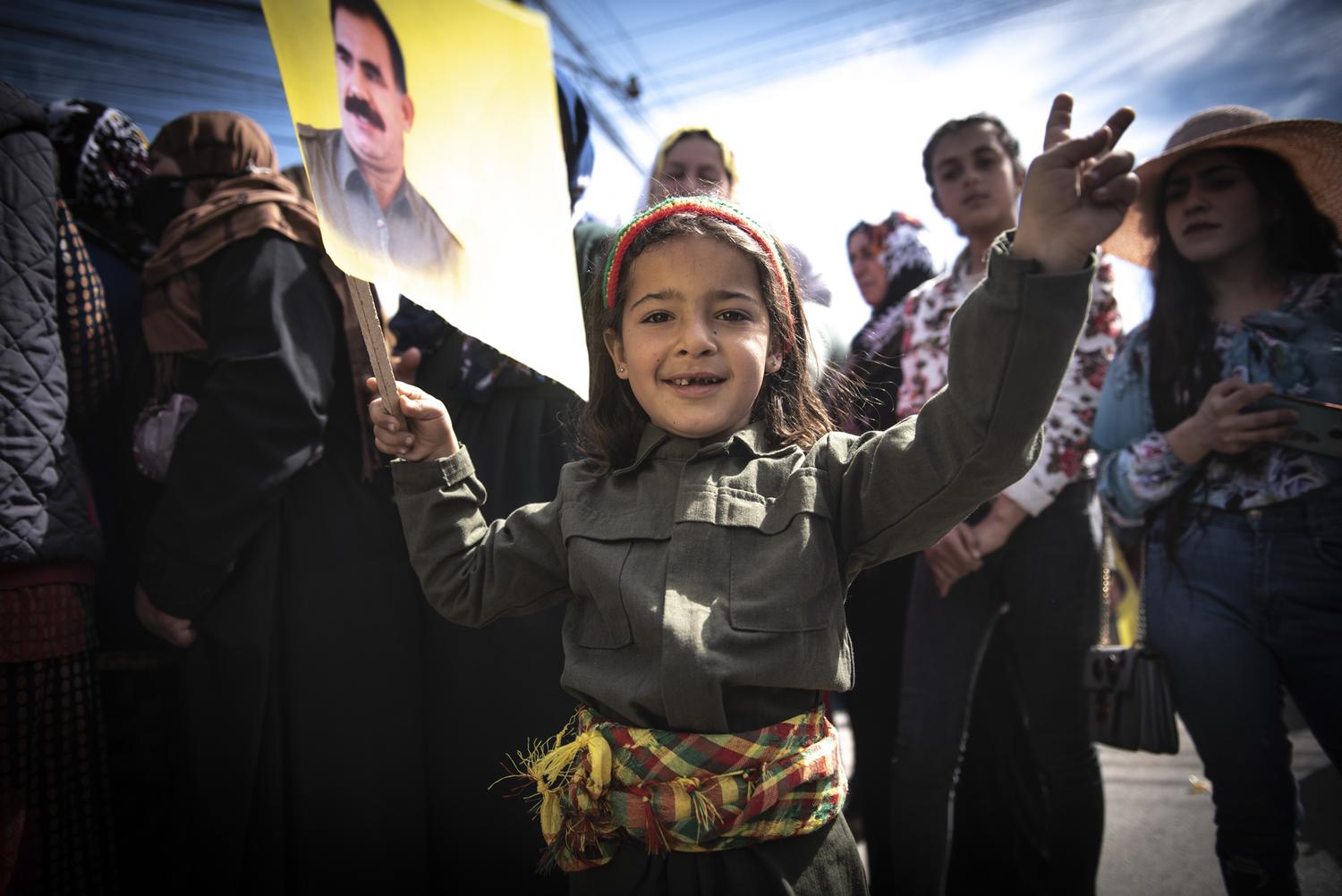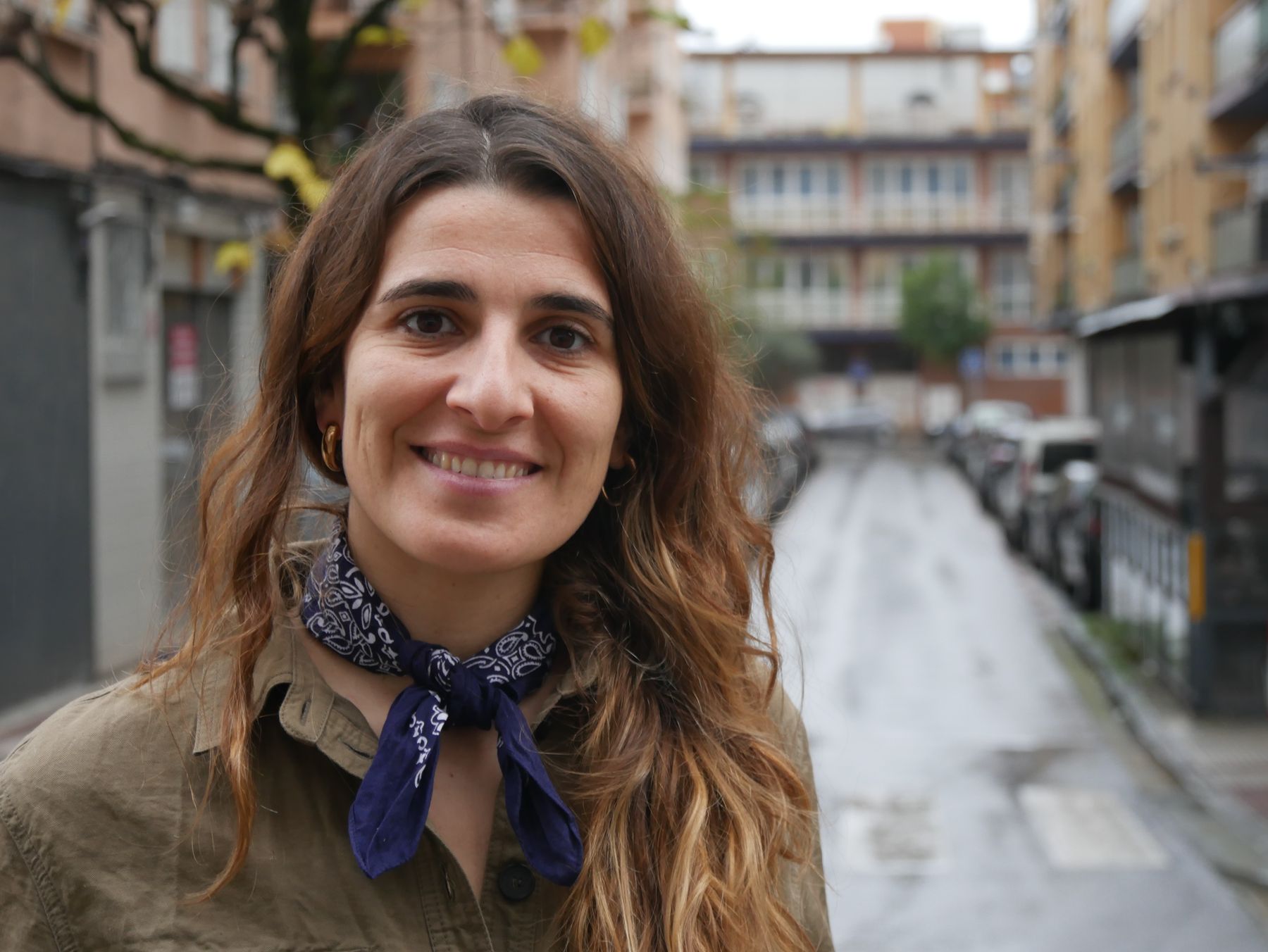Asylum seekers rebel against unfair laws
- Berlin has just received the most massive demonstrations in defence of refugees seeking asylum in Germany, fleeing the political persecution of their countries. They report that they are suffering from a situation of extreme hardship, have them in their homes with poor conditions and are not allowed to move from them. We've been in the protests, listening to those things through the mouths of the refugees.
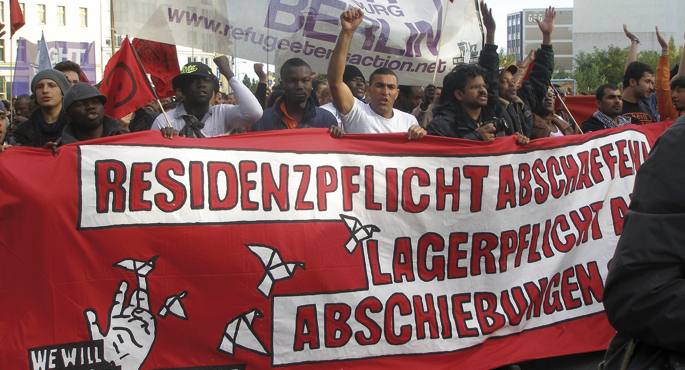
“We have no chance of working or learning the language. We don’t have the opportunity to leave the village that has touched us.” These are words from the Iranian refugee Houmer Hedayatzad. The request for asylum was made about a year ago and is yet to be answered. “Sometimes it can take two months, but there are also people who have been waiting for ten years to receive the response to the request.” Meanwhile what? Ban on working in many cases, lack of access to language courses and the commission of living in so-called lagers. Lagers are residences for asylum seekers, with very few conditions: lack of intimacy, cracks in the walls, leaks... In these conditions, “you lose something within you, part of your being,” Hedayatzadek tells us. He has been living in Germany for a year. He had to leave Iran, where he was sentenced to two and a half years in prison. "The Iranian Government treats me as a criminal for belonging to the opposition, because it believes that anything that is done publicly is political work. If in a supermarket you say that prices have risen a lot or you talk to a taxi driver, you will be stopped immediately on the grounds of political criticism.”
When refugees arrive in Germany, they are first concentrated in large residences (6 weeks to 3 months) and then dispersed in small villages. Omid Moradian is from Kurdistan and has been in Germany for three years. So far he had lived in a lager, about twenty kilometers from Regensburg, isolated from the world, and last July, fed up with the situation, he joined the Regensburg camps. “Until three months ago, I thought all Germans were racist. But in these protests I've met a lot of people and I've changed the way I think in German, it's opened my eyes."
German legislation is not, however, in favour of: The Residenzpflich standard prohibits foreigners applying for asylum from moving through the residence enclosure adapted to their status as residents of the area. “It’s a law of exception that Germany has and is not in any other country in Europe,” explains Karin Prätori, who has been fighting for refugees for 20 years. The law stipulates that asylum seekers must be in common accommodation and that anyone who fails to serve can be sentenced to one year ' s imprisonment. The federal government has long wanted to extend the rule to the whole of Europe, without success. In 1938, the National Party established the Residenzplich Law, which was aimed primarily at Jewish lawyers, with the aim of preventing the defence of Jewish citizens living in Germany. Today, the law often has a clear goal: for foreigners to leave the country.
Alexander Thal, a member of the Bavarian refugee advisory team, says the ban on isolating and moving through the lagars destroys people: “It destroys all expectations and future projects. I've been in these houses, visiting the refugees, and although I only spent two hours, I've come out with depression. Think about the age of 25!” According to the Universal Declaration of Human Rights, every citizen has “the right to change city at any time and to choose their area of residence/city”. German legislation does not seem to think the same.
Camping in defence of rights
Last January, Iranian refugee Mohammad R. committed suicide in the city of Würzburg in the state of Bavaria. It was not an isolated situation, since in recent years there have been many refugees who have opted for it in Germany, but the event draws attention to the movement for refugees in Bavaria. In March, they began a camp in the city of Würzburg, in which they publicly denounced their situation and their situation. Gradually the movement was gathering echo and spread to the cities of Düsseldorf, Nürnberg, Passau and Regensburg. During these months, photographic exhibitions, conferences, encampments, hunger strikes on violations of rights have been held. Between March and June last year, the German refugees carried out three hunger strikes in the city of Würzburg. In solidarity, they repeated the fasting in seven other cities.
In September, in order to extend the movement to the whole of Germany, a four-week march, 600 kilometres from Würzburg to Berlin, was held. And in parallel, another bus march crossed the northwest. There were also some clashes with the neo-Nazi teams (particularly in Thüring, Saxony and Potsdam). Last month's demonstration was the highlight, in the same city of Berlin: More than 6,000 people met to show their solidarity with the refugees in the area. However, in Hedayatzadek's view, the scale of mobilizations could be even greater, but refugees are afraid: “Asylum seekers are aware that failure to respect Residentpfllich increases the risk of being deported to their countries. They are blackmailed by the government.”
The march has, in general, had a great media impact. The state television companies ARD and ZDF, as well as the newspapers Der TagSpiegel and Suddeutsche Zeitung, among others, have devoted an important space to this subject, so far practically unknown to the citizens. However, the discussion continued: In 2010, the Pro Asyl refugee support group went to court to claim that anyone, both indigenous and foreign, is entitled to a minimum benefit. The Fourth Bear Act states that every unemployed citizen is entitled to a home and a monthly income of EUR 374, but the situation of asylum seekers is quite different. They have them in the lagars and they give them 40 euros a month. The rest of the subsidies are collected in food and clothing that can choose from limited lists. After the July judgment, refugees say that they are now charging EUR 134 in cash, but that this is not enough. At least, Prätori says that these laws, which politicians had in secret, have served to bring public opinion. “In addition, this ongoing pressure can force the government to change other laws, such as the Residenzpflich.”
The movement against the current asylum policy calls for four main demands: the suspension of all deportations; the recognition of the political status of asylum seekers; the repeal of the Residenzpflich law; and the closure of isolation residences. Following the demonstration in Berlin, the demonstrators have not stood idly by and have continued several protest actions. On 15 October, for example, the Nigerian embassy was occupied, where the police arrested 28 people. It should be noted that Germany has agreements with Nigeria to deport undocumented refugees arriving in the German country, such as those it had in its day with Libya in Gaddafi.
Residenzpflich al Bundestag Law
On 24 October, some twenty people started a hunger strike that lasted eight days at the door of Brandenburg. The police dismantled the camp and removed their sleeping bags, so they were forced to spend the eight days without shelter. The protests have borne fruit and this month the Bundestag has come to the German Parliament, through the left-wing coalition Die Linke, the Greens Die Grünen and the Socialist Party SPD. Thus, parliamentarians have referred to the controversial law of Residenzpflich, which supports most parties, considering that it is an essential tool to maintain control of refugees. The members of the movement are clear that they will continue at the door of Brandenburg, with Gandhi’s quote in the head: “First they will do as if they don’t see it, then they will laugh at you, then they will attack you and eventually win.”
Urtero errefuxiatu ugarik egiten du asilo eskaera Alemanian. Migrazio eta Errefuxiatuen Bulego Federalaren datuen arabera, 2011. urtean 45.741 lagunek egin zuten eskaera, eta aurten, irailera bitarte, 40.201 dira dagoeneko. Kopurua handituz joan da azken bost urteotan eta Afganistan da gehienen jatorria; eta ondoren, Irak, Serbia eta Iran, hurrenez hurren.
Lurrikara geopolitiko bat astintzen ari da Ekialde Hurbileko mapa. Anabasaren erdian, Abdullah Öcalanen bakerako azken deiak mahai gainean jarri du eskualdeko gatazka armatu zaharrena. Ez, aurrekariek ez diote bide ematen itxaropenari, eta historiaren trena inoiz baino... [+]
SDF kurduek gidatutako koalizioak eta Siriako Gobernuak su-etena adostu dute. SDFk Siria ekialdeko eta ipar-ekialdeko eremu zabala kontrolatzen du egun, eta hitzarmenak jaso duenez, gobernuaren esku geratuko da orain.
Abdullah Öcalan buruzagiak PKKri otsailaren 27an eskatu zion armak uzteko. Taldeak egin duen adierazpenean babes osoa agertu dio buruzagiari eta Öcalanek eskatutakoa betetzeko konpromisoa adierazi du.
Urteak iragan dira bere azken argazkia ikusi zenetik. 26 urte daramatza preso Abdullah Öçalanek Turkiako Imrali uhartean, "erakunde terroristako" buruzagitza egotzita. Ostegun eguerdian bere bideo bat ez, baina argazki berri bat zabaltzeko baimena eman du... [+]
Turkish helicopters and fighter aircraft cover the sky in the Kurdish area in northern Iraq. The Turkish Air Force has bombed 381 sites in the major military operation in recent weeks in the Kurdistan Autonomous Region (DRC). The Turkish Ministry of Defence has stated that "the... [+]









